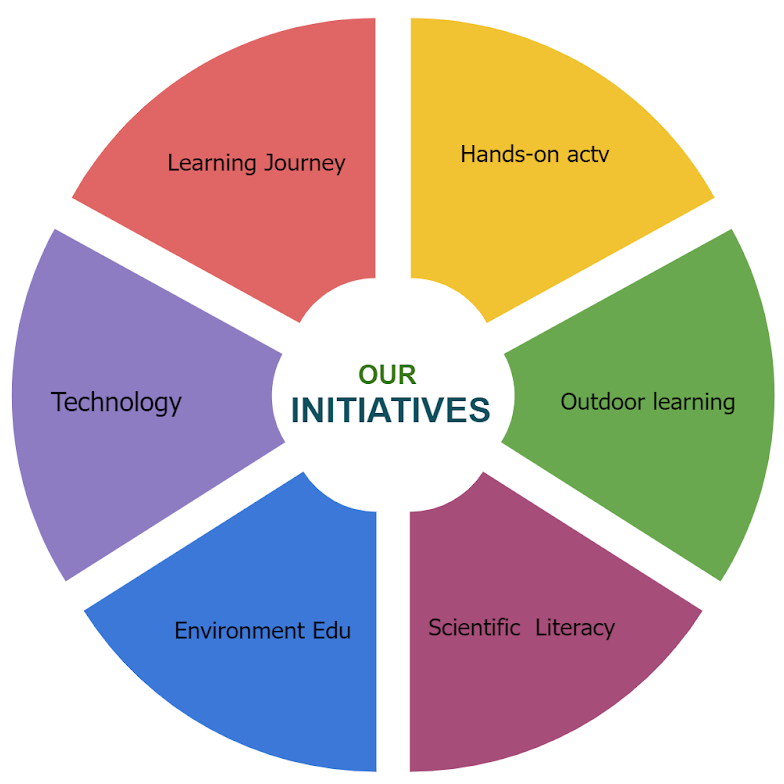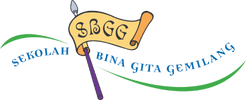Science
Every Student is a Scientist
Vision: Every Student is a Scientist
Mission:
To nurture curious and active learners through inquiry-based learning and develop their scientific skills while cultivating the right attitude towards our environment.

Hands-on Activities and Outdoor Learning
The different garden pockets and pond in the school serve both aesthetic and educational purposes. With the greenery around the school, it is common that students get to spot some ‘visitors’ in the gardens like butterflies, caterpillars, grasshoppers, ants, birds and lizards.
The Learning Gardens and the Pond are the living laboratories where our students can relate and interact with nature instead of just learning about nature through textbooks or the internet. Real life observation data are collected for investigations making learning meaningful. Furthermore, students also get to explore scientific concepts through hands-on activities independently or collaboratively in the Science laboratory.
Performance-based assessment provides students with the opportunities to reinforce what they have learnt collaboratively, i.e. growing vegetables, design and construct, electricity projects, etc.
Learning Journeys
The purpose of these journeys is to engage our students in learning through authentic experiences beyond the classroom. Students’ curiosity is stimulated through experiential learning journeys which extend student’s learning of science in school. The learning journeys include places such as the vegetable gardens, zoos, hydroponics workshop, rainforests, botanic garden, composting workshops, sanitary landfill, and some other relevant sites.
These learning journeys have opened the minds of our students and become more aware of their environment and learn to apply science concepts and ethics to real life situations around them. They have learned to work collaboratively in a team and develop thinking and communication skills.
Environment Education
Science department strives to inculcate Respect for our environment through conservation of resources by Reducing, Reusing, Recycling and Upcycling. Green wave campaigns are implemented to raise awareness for environmental issues such as littering, food waste, air pollution, greenhouse effects, and encourage everyone, including home and the community to take part in keeping Jakarta clean and green.
Scientific Literacy
Language is fundamental to Science. Knowing how to read and write scientific texts and diagrams facilitates students’ understanding of complex scientific knowledge and processes. Scientific literacy refers to understanding of scientific concepts, phenomena and processes and the ability to apply the knowledge to new and, at times, non-scientific situations (PISA, 2018).
In building the scientists of tomorrow, we emphasize the importance of acquiring the language of Science, communicating and developing their scientific understanding and scientific inquiry skills.
